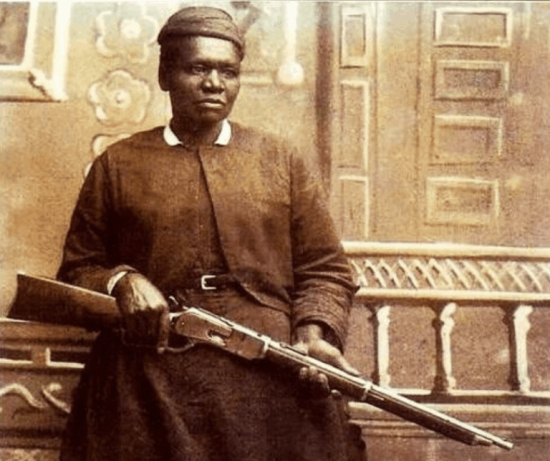One of my favorite Northwest First Women is Stagecoach Mary, the First African-American Woman mail carrier for the U.S. Postal Service. Mary was a slave born in Hickam County, Tennessee, where she lived for the first thirty years of her life. Her birth is not recorded, but she was probably born about 1832. When her mother pondered what to name her, she looked around the plantation and decided on Mary Fields.
It was not unusual in those times for a slave child to become friendly with a white plantation child and for those two to later grow apart. This path was a little different for Mary. She was friends with the plantation owner’s daughter, Dolly Dunn. They were separated when Dolly went off to boarding school and then Dolly joined a convent. During the Civil War Mary was left behind on the plantation where she had to learn survival skills. She learned to plant her own food, to raise poultry and, most important, to use plants for medicine. Then Mary and Dolly’s paths, atypically, reunited.
Dolly, who was now Sister Amadeus, invited Mary to come to Ohio to work in the convent. Both were about 30 years old at the time. When Sister Amadeus went to the missions of Montana, Mary remained behind. Then Sister Amadeus became ill and Mary went to Cascade, Montana, where the nuns had opened a school for Native American girls. Mary was already around 53 years old. She treated Sister Amadeus, who recovered. The nuns then paid Mary by engaging her to manage their gardens and chickens. She did manual labor, repaired buildings, did laundry, hauled freight. Eventually she became the forewoman at the convent.
Mary, however, was definitely not religious. She liked to drink and smoke in the bars with the rowdies in town. She was 6’2” and could deck a man with one blow. When the men at the convent realized that Mary was making more money than they were, they began to bad-mouth her, probably just relating actual events. The nuns had either not known of her outside activities, or had turned a blind eye, but the bishop did not. Mary was fired.
She then ran a restaurant, but she had this propensity to give away food to whoever couldn’t pay. The restaurant, not surprisingly, was a failure. She was already about 60 when she heard Wells Fargo was looking for someone to deliver the mail. Each applicant had to hitch horses to a wagon and she did so in record time, beating the other contenders. Thus, she became the First African-American to deliver the mail and only the second woman.
Mary had a reputation for always being on time with the mail. If her wagon and mule were caught in a snowdrift, she went forward on snowshoes. She was known for her dedication and it was during this time that she gained the sobriquet “Stagecoach Mary.” This is probably a reflection of her reliability, but some say she actually drove a stagecoach.
She was also known for her kindness to others, but Mary Fields still liked to drink and smoke. When the city of Cascade barred women from the saloons (other than prostitutes, of course), the mayor made a special exception for Mary—for the balance of her life.


Where do you find these? Another great woman I’d never heard of. Well done.